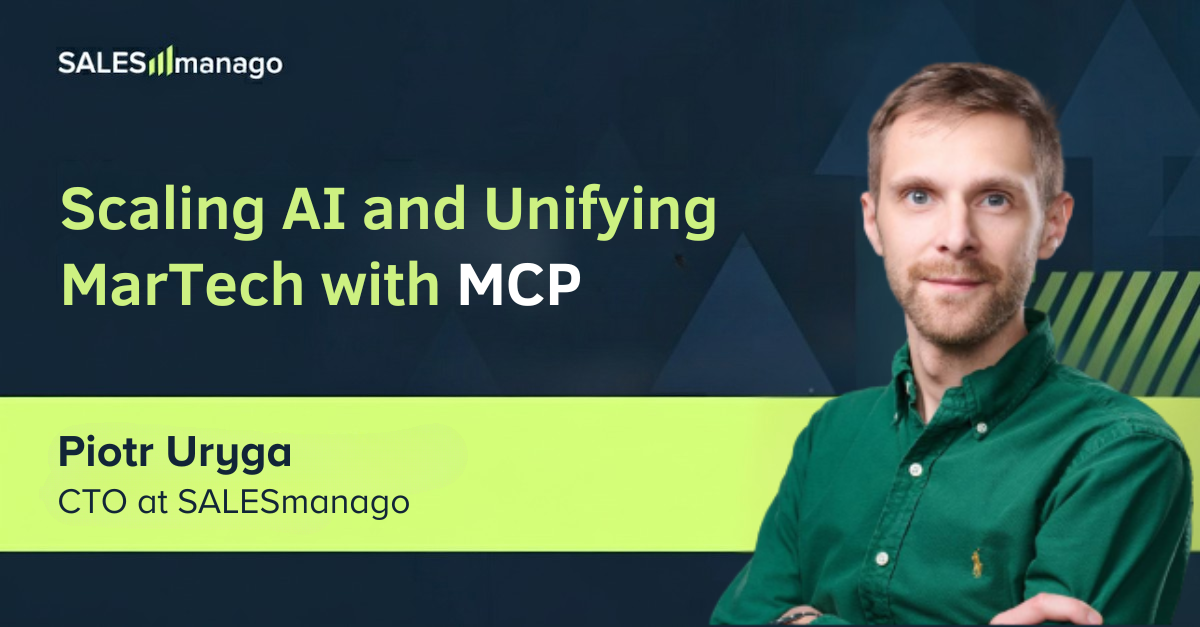
The eCommerce landscape is clear: AI is the future of growth. But this promise is constantly being challenged by a single problem: fragmentation. We must shift from a situation where integrating two systems takes months of engineering work to where complexity is handled by the platform, and we can focus on business execution.
As CTO at SALESmanago my focus is on solving this fundamental problem. And the answer is the Model Context Protocol (MCP). This is the strategic layer that is turning the eCommerce stack from a collection of fragmented systems into one intelligent operating entity.
Why Fragmentation Kills AI
AI is not killed by lack of algorithms but by lack of unified data. The reality is that integrating systems used to require technical specialists, API connectors, continuous testing and maintenance – a continuous, highly specialised job. This created fragmented technological stacks, often taking months or years to consolidate. This is especially true in MarTech where the stack is highly fragmented in larger organisations and is a hidden cost for them. The high-level goal of MCP is to solve this by accelerating growth.
>> Read also How to Supercharge Every Stage of Your AI Lifecycle Marketing
MCP: The Language Layer that Makes All Your Systems Speak AI
The technical beauty of MCP is that it serves as a single context layer. The whole concept was created to deliver precise data and context to large language models (LLMs) for reasoning and inference. This protocol is evolving fast and is becoming the standard for delivering information to LLMs in a structured way.
But how does a single protocol achieve what years of complex API projects failed to deliver? MCP is an open, standardised communication layer that shifts the focus from a proprietary CDP to an open protocol for context and data access. The key is that the LLM can use, link and infer relationships between different data sets because we provide the context description of the data. This creates a Single Source of Truth for every AI agent.
The LLM Agent can connect to arbitrarily many MCP servers built on top of different systems like Google Ads, Google Analytics and ERP providers. This multi-system connectivity means that a non-technical person can combine several tools and get the desired integration effect just by talking to the computer. This eliminates the friction of traditional development cycles and accelerates time-to-value.
Strategic Outcomes for AI-powered Marketing
Getting all this context unified is a major strategic advantage; it simplifies the marketer’s workflow and accelerates growth.
Democratising Smart Insights
MCP changes data analysis, moving it from the hands of specialised data scientists directly to the marketer. For example, the SALESmanago platform allows to generate dedicated analytics, smart insights, market research and deep data analysis just by writing a query. Users can request to create 100% custom business dashboards on demand, analyze campaign performance and even build CTR heatmaps by channel/time to recommend optimal send times. Moreover, the system can research data online to build rich contact profiles and update CRM data with data gathered from SALESmanago and external sources.
Goal-oriented Execution
This unification enables true natural language automation. The platform can now execute campaign goals (segmentation, content, execution) based on a conversation, a task that used to take hours of manual work. Users can talk to the system to prepare complex user segmentation, which the platform understands and prepares for confirmation. This moves marketers into the next horizon of Agentic AI where the system auto-builds smart workflow templates and executes complex, multi-step tasks.
Optimising the Entire Revenue Funnel
Finally, MCP’s connectivity allows us to focus on profitability across the entire business. This includes providing predictive targeting by recommending the “Next Best Audience” using dynamic RFM+ segments and using AI-driven attribution modelling to recommend (or automatically reallocate) ad budgets between channels like Meta Ads and Google Ads. Crucially, we can connect sales data with product profitability (PIM, ERP) to automatically identify best performing campaigns vs margin and recommend pricing and cross-sell bundles.
The Human in AI
It’s pretty obvious to anyone who has ever used AI agents but AI models can make mistakes. They lack full understanding in some cases and even pose risks like data leaks that can lead to reputational damage and legal issues.
The human role must therefore evolve into that of a verifier and guard. Despite the powerful capabilities of AI, a human must always be the final sentinel for the process, verifying results and minimizing potential mistakes. Full control must never be surrendered to the technology. At SALESmanago our focus is on enabling efficient, secure tools while keeping the human architect in control of the strategic vision.
Visual Summary
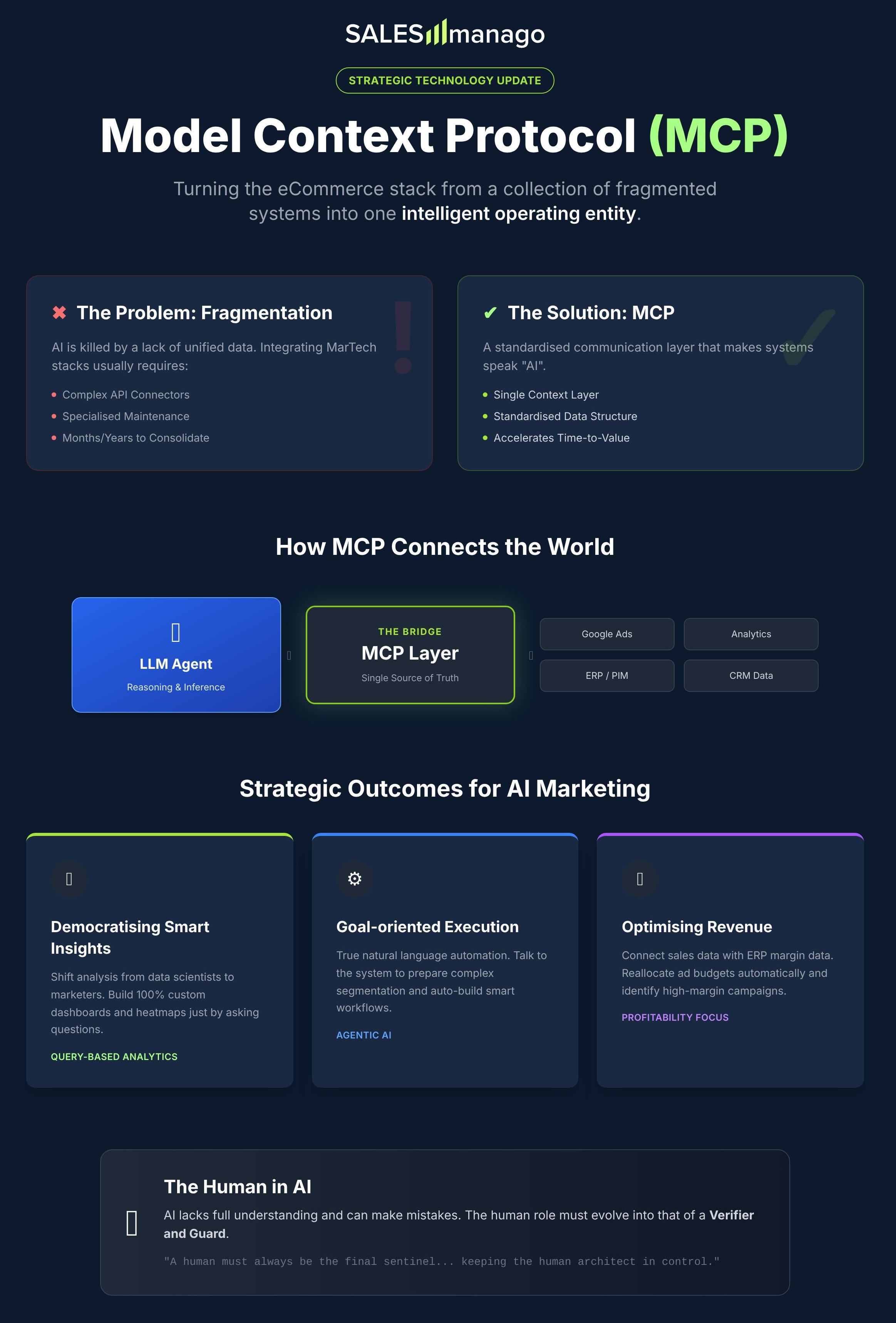
Latest posts
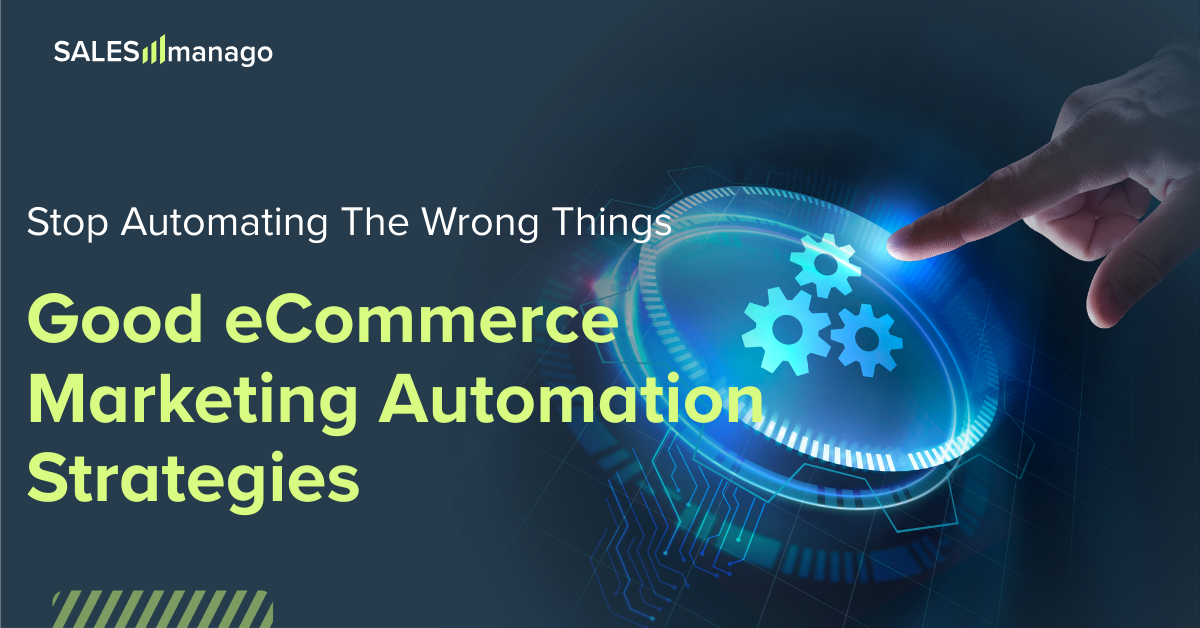
Stop Automating the Wrong Things: Good eCommerce Marketing Automation Strategies
You’ve automated welcome emails. You’ve got abandoned cart sequences running. Congrats, you’ve checked the boxes every tutorial told you to check.Meanwhile, your VIPs are churning because nobody automated the retention workflow. Your one-time buyers never get nudged towards a second purchase. Your mid-value customers drift away while you obsess over cart aband...
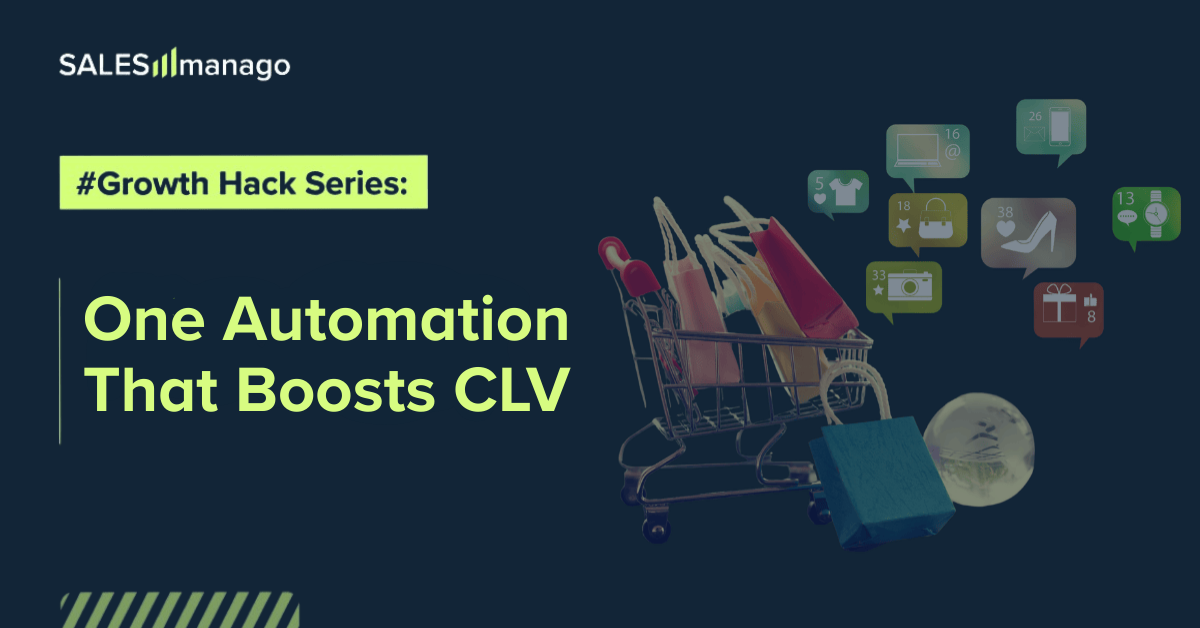
Growth Hack Series: One Automation That Boosts CLV
When working in an eCommerce marketing team you have plenty of metrics to observe: AOV, CR, RPV, CAC, CTR, CPC and a few other cool sounding acronyms. But sometimes the most important data you need is hidden under simple questions. “How many first-time buyers became second-time buyers last month?” — and the room usually goes quiet.That silence is expe...
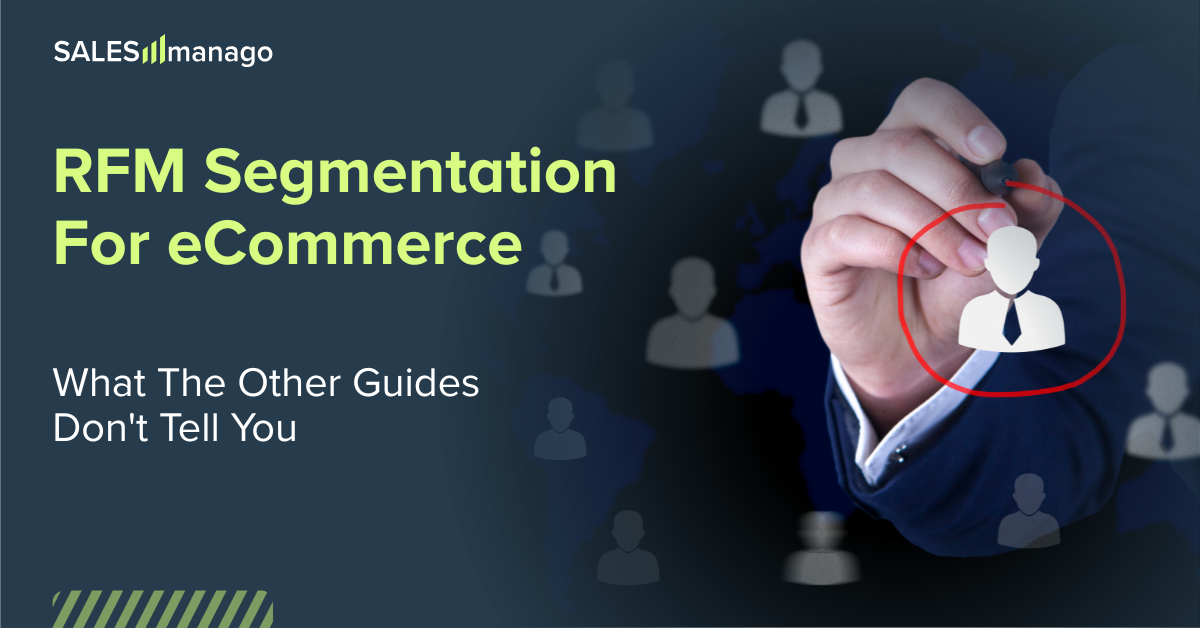
RFM Segmentation For eCommerce: What The Other Guides Don't Tell You
You've read the RFM segmentation guides. You get it. Recency, Frequency, Monetary Value. You understand that your best customers bought recently, buy often, and spend big. You've even tried building segments.So why is your email performance still flat? Why is retention stuc...

